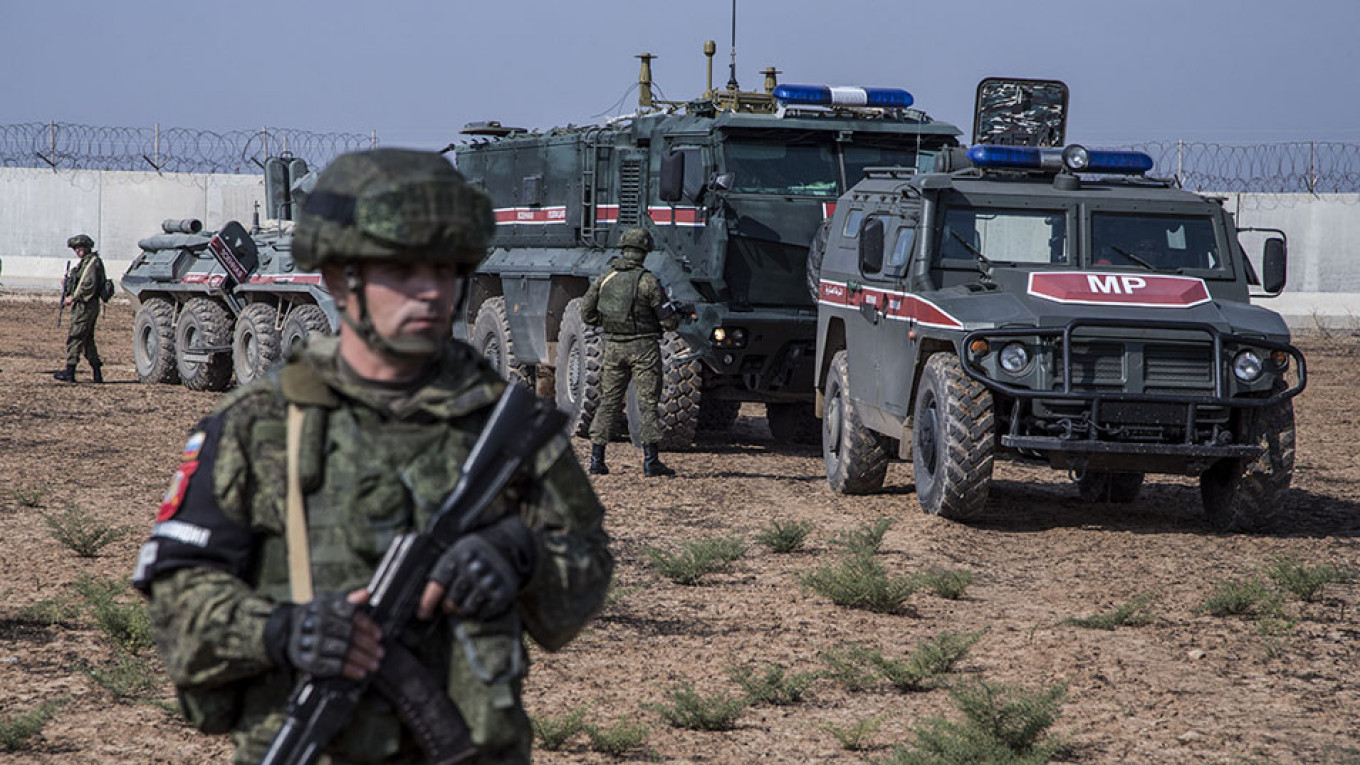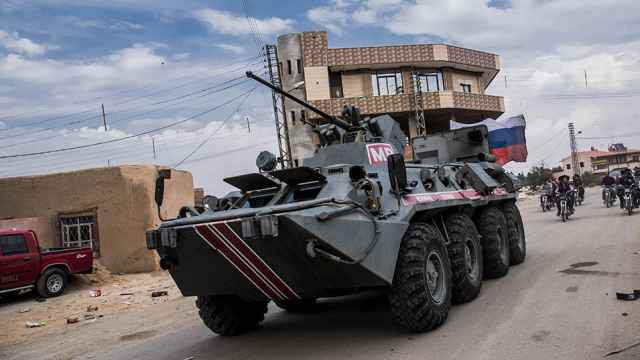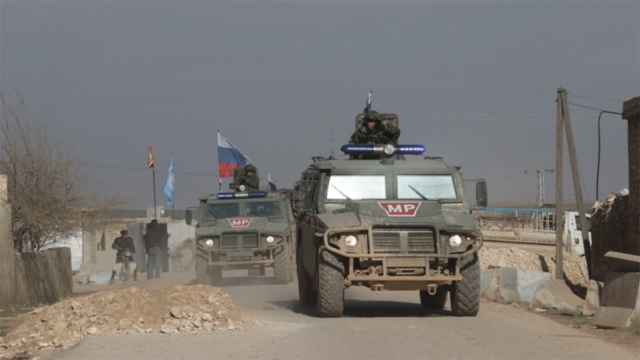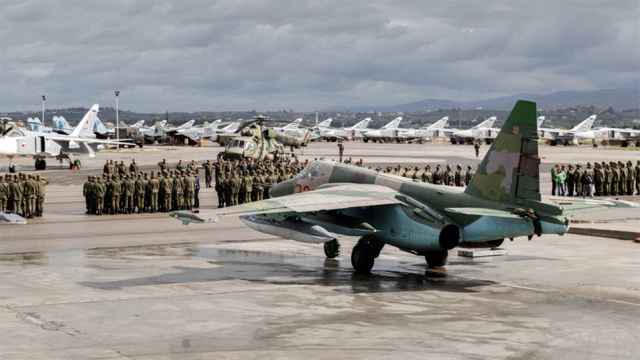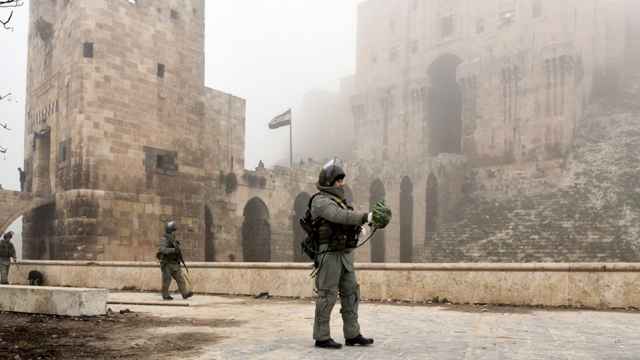Turkish and Russian troops on Tuesday began their second joint patrol in northern Syria near Kobani, under a deal that has forced a Kurdish militia away from Turkey's border, while local media released footage of angry crowds pelting a convoy with stones.
Nearly a month ago, Turkey and Syrian rebel allies launched a cross-border incursion against Kurdish YPG fighters, seizing control of 120 kilometers of land along the frontier.
Under a subsequent deal, Russia and Turkey agreed to push the YPG militia to a depth of at least 30 kilometers south of the border and to hold joint patrols to monitor the agreement.
President Tayyip Erdogan said on Tuesday that the YPG had not withdrawn from that planned "safe zone," despite Turkey's agreements with both Russia and the United States.
Ankara considers the YPG — which helped the United States smash the Islamic State caliphate in Syria — a terrorist group because of its ties to militants who have waged an insurgency in southeast Turkey since 1984.
Tuesday's patrol was launched 7 kilometers east of Kobani, a Syrian border town of special significance to the YPG, which fought off Islamic State militants trying to seize it in 2014-15 in one of the fiercest battles of the Syrian war.
Armored vehicles crossed through a gap in the border wall to the Syrian side and headed east, a witness said. Security sources said the patrol would cover a distance of 72 kilometers at a depth of 5 kilometers from the border.
Near Kobani, crowds pelted passing Turkish and Russian armored vehicles of the patrol with stones from a roadside and chanted slogans, footage from local North Press Agency showed.
Several dozen people managed to stop two Russian armored vehicles and some of them climbed onto one of the cars with Russian military police insignia, a video released by local news outlet Anha showed.
The Russian Defense Ministry said on Tuesday there were no incidents during the patrol mission.
The Turkish Defense Ministry shared photos on Twitter showing Turkish and Russian soldiers meeting at the border and studying maps before the start of the patrol. It said drones were also taking part.
Russia is the Syrian government's most powerful ally and since 2015 has helped it retake much of the country from rebels, turning the tide in the civil war. The Turkish-Russian deal enabled Syrian government forces to move back into border regions from which they had been absent for years.
Russian military police arrived in Kobani on Oct. 23 under the deal reached by Erdogan and Russian President Vladimir Putin.
The first patrol, on Friday, was held around the Syrian border town of Darbasiya, east of the region from where Turkish and their Syrian rebel allies forced out the YPG fighters.
Erdogan said last week that Turkey planned to establish a "refugee town or towns" in that region between Tel Abyad and Ras al Ain, part of a project that state media have said would cost 151 billion lira ($26 billion).
Ankara launched its offensive against the YPG following President Donald Trump's abrupt withdrawal of 1,000 U.S. troops from northern Syria in early October.
A Message from The Moscow Times:
Dear readers,
We are facing unprecedented challenges. Russia's Prosecutor General's Office has designated The Moscow Times as an "undesirable" organization, criminalizing our work and putting our staff at risk of prosecution. This follows our earlier unjust labeling as a "foreign agent."
These actions are direct attempts to silence independent journalism in Russia. The authorities claim our work "discredits the decisions of the Russian leadership." We see things differently: we strive to provide accurate, unbiased reporting on Russia.
We, the journalists of The Moscow Times, refuse to be silenced. But to continue our work, we need your help.
Your support, no matter how small, makes a world of difference. If you can, please support us monthly starting from just $2. It's quick to set up, and every contribution makes a significant impact.
By supporting The Moscow Times, you're defending open, independent journalism in the face of repression. Thank you for standing with us.
Remind me later.


